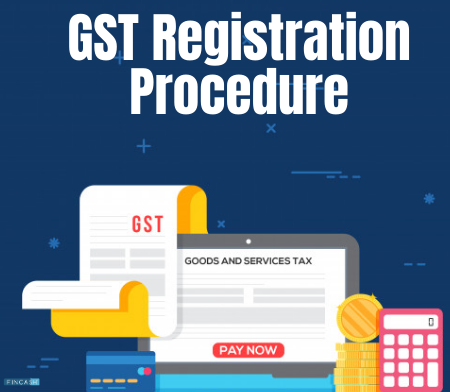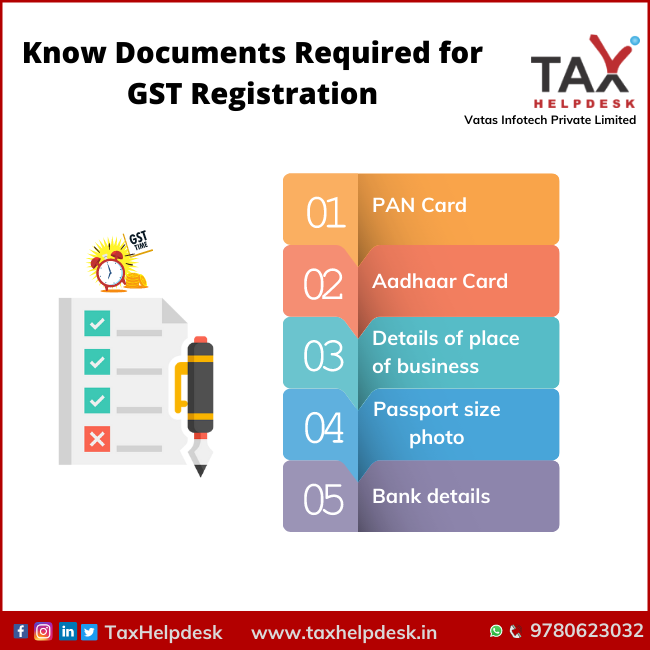Full List for Reliable Singapore GST Registration
Full List for Reliable Singapore GST Registration
Blog Article
Understanding GST Enrollment: Crucial Steps to Ensure Regulatory Compliance and Company Growth
Navigating the realm of Product and Solutions Tax (GST) registration can be an essential action for organizations intending to keep conformity and foster development. The complex procedure of signing up for GST demands a keen understanding of the necessary actions included, from realizing the basic concepts of GST to thoroughly preparing the needed paperwork. Beyond just ticking off the regulatory checkboxes, mastering GST enrollment opens up a world of possibilities for businesses to strategically utilize this tax obligation framework to move their development. Comprehending the nuances of GST registration is not simply an administrative requirement however a calculated step that can shape the trajectory of a company in the direction of lasting success.
Recognizing GST Fundamentals
Recognizing the basics of Item and Services Tax (GST) is crucial for services to browse the complexities of tax obligation compliance and economic monitoring effectively. GST is a value-added tax levied on the supply of products and solutions in India, intending to create a unified tax system across the nation. Singapore GST Registration. Under GST, organizations require to register and obtain a special GSTIN (Product and Solutions Tax Identification Number) to be compliant with the law

Readying Necessary Records
To ensure compliance with GST registration requirements, businesses must gather and organize the needed records for the application process effectively. The essential papers normally required for GST registration consist of evidence of service registration or unification, frying pan card of the identity, business and address proofs of promoters, pictures, financial institution declarations, and proof of address of the business. In addition, organizations might need to provide information of accredited notaries, company activities, and turn over. It is vital to make sure that all papers are precise, up to day, and fulfill the demands specified by the tax authorities to stay clear of hold-ups or beings rejected in the registration procedure.
Organizing these papers in a systematic way can simplify the application process and show the service's dedication to regulative conformity. Companies need to maintain both physical and electronic copies of these records for easy gain access to and referral. By preparing the necessary papers faithfully, companies can quicken their GST enrollment process and concentrate on their core procedures with the assurance of governing conformity.
Online Enrollment Process
Start the GST enrollment process by navigating to the official online site marked for service registration. When the account is set up, you can continue with loading out the GST enrollment application type by entering the necessary business details, consisting of company address, turn over, and type details.

Compliance and Coverage Responsibilities
Upon successful enrollment on the GSTN portal and conclusion of the required documentation, services should abide by strict conformity and reporting responsibilities to guarantee governing adherence and operational openness. Compliance needs under GST mandate precise and timely filing of numerous returns, such as GSTR-1 for outside products, GSTR-3B for regular monthly recap returns, and annual returns like GSTR-9. In addition, businesses require to integrate their sales and purchase information through GSTR-2A and GSTR-2B to insurance claim input tax obligation debts properly.
Keeping appropriate documents of billings, accounting files, and various other relevant data is critical for GST compliance. Routine audits and analyses by tax authorities require organizations to have precise documents and reporting systems in position. Any type of disparities or non-compliance this article can lead to charges, penalties, or perhaps suspension of GST enrollment.
To streamline compliance procedures, businesses can take advantage of GST conformity software program that automates return compliance, reconciliation, and filing tracking. Staying updated with regulative modifications and looking for specialist suggestions when required can further enhance compliance efforts and guarantee smooth operations within the GST framework.
Leveraging GST for Business Growth
Businesses can strategically utilize the GST structure to drive lasting growth and improve operational efficiency (Singapore GST Registration). Leveraging GST for business development entails more than just compliance; it offers a possibility for business to improve processes and optimize their financial procedures. One vital benefit of GST is the input tax credit history mechanism, which allows organizations to declare credit scores for tax obligations paid on inputs. By properly handling input tax credits, firms can decrease their overall tax obligation liability and boost capital. Furthermore, GST promotes openness and responsibility in the tax obligation system, which can assist companies construct count on with companions and clients.
Moreover, GST registration can additionally open up new markets for organizations. Being GST-compliant can enhance reputation and make it simpler to increase operations across state boundaries. This not just enhances market reach however additionally fosters a competitive side in the marketplace. By aligning with GST guidelines, organizations can adapt to changing market dynamics and stay in advance of the competitors. Basically, leveraging GST for business growth includes calculated preparation, effective conformity, and a progressive strategy to financial management.
Final Thought
To conclude, understanding GST registration is essential for making sure governing conformity and assisting in organization development. By comprehending the essentials of GST, preparing needed records, finishing the on the internet registration process, and fulfilling conformity and reporting responsibilities, services can take advantage of GST internet to their advantage. It is necessary for organizations to follow the regulations and use GST as a device for broadening their operations and remaining competitive out there.
Navigating the world of Item and Provider Tax (GST) registration can be a crucial action for services aiming to keep conformity and foster growth. The key documents typically required for GST enrollment include proof of organization registration or consolidation, PAN card of the identification, business and address proofs of marketers, photographs, financial institution statements, and evidence of address of the place of service.Commence the GST enrollment procedure by navigating to the main online portal assigned for organization registration. When the account is established up, you can proceed with filling up out the GST enrollment application form by getting in the necessary service details, including service turnover, address, and kind details.
By recognizing the basics of GST, preparing required records, finishing the online registration procedure, and meeting conformity and reporting obligations, companies can take advantage of GST to their benefit.
Report this page